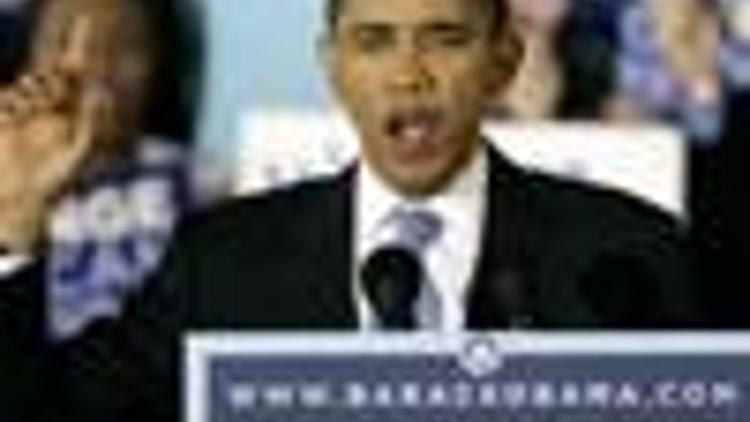Obama wins N. Carolina, Clinton takes Indiana
Güncelleme Tarihi:

Barack Obama scored an easy win in North Carolina on Tuesday to take a big step toward the Democratic presidential nomination, and Hillary Clinton struggled to a narrow victory in Indiana that kept her faint White House hopes alive.
With a double-digit win over Clinton in North Carolina's nominating contest, Obama rebounded from a rough campaign stretch fueled by his comments on "bitter" small-town residents and a controversy over racially charged comments by his former pastor, the Rev. Jeremiah Wright.
In Indiana, Clinton led Obama by about 23,000 votes out of more than 1.2 million votes cast with nearly all of the ballots counted early on Wednesday.
The two Democrats are engaged in a grueling battle for the right to represent the party in November's presidential election against Republican John McCain.
Tuesday's result meant the fight stretches on to the remaining six state contests, starting with West Virginia on May 13.
"We have seen that it's possible to overcome the politics of division and distraction, that it's possible to overcome the same old negative attacks," Obama said in Raleigh, North Carolina, in a speech that took the tone of a candidate already fighting the general election.
An upbeat Clinton, speaking before her win in Indiana was assured, promised supporters in Indianapolis: "It's full speed on to the White House." But her slim margin in Indiana and crushing loss in North Carolina raised fresh questions about the viability of her effort to overtake Obama's lead in delegates and popular votes won in the nominating race since the contests began in January.
Clinton, a 60-year-old New York senator and former first lady who would be the country's first woman president, asked the Indianapolis crowd for donations to keep alive her campaign, which has been heavily outspent by Obama. "We've got a long road ahead, but we're going to keep fighting," Clinton said, with her husband former President Bill Clinton standing behind her.
OBAMA MOVES CLOSER TO WIN
Obama, a 46-year-old Illinois senator who would be the first black U.S. president, beat Clinton by 14 percentage points in North Carolina to move closer to the 2,025 delegates needed to clinch the nomination at the party's August convention.�
Indiana and North Carolina, with a combined 187 delegates to the convention at stake, were the biggest prizes left in the race. There are 217 delegates up for grabs in the remaining six contests.
Obama has an almost unassailable lead in pledged delegates who will help select the Democratic nominee. An MSNBC count gave Obama 1,876 total delegates to Clinton's 1,729 after Tuesday's contests.
Delegates are allocated on a proportional, rather than a winner-take-all basis, meaning the close finish in Indiana and Obama's big margin in North Carolina allowed him to expand his lead slightly.
"We're nearing the finish line," Obama's chief strategist David Axelrod told reporters. "I think we've taken another big step down the road here to ending this contest and beginning the general election campaign."
Neither candidate will win enough delegates to clinch the race before the state-by-state voting ends on June 3, leaving the decision to nearly 800 superdelegates -- party insiders free to back any candidate.
Clinton's campaign said the race was far from over.
"They've been trying to wrap up this nomination over the will of the voters for a long time, and it hasn't worked," said Clinton spokesman Mo Elleithee. "There's a funny thing about democracy. Voters like to have a say."
Exit polls showed the faltering U.S. economy, which has increasingly preoccupied voters around the country, was the top issue for two-thirds of Indiana voters and about 6 of every 10 voters in North Carolina.
In the last week, the two Democrats had courted working- and middle-class voters suffering from an ailing economy and high gas prices and battled over Clinton's proposal to lift the federal gasoline tax for the summer.
Voter turnout was high in both states, as it has been throughout the Democratic race -- a reflection of the interest and enthusiasm the Obama-Clinton duel has generated.
Photo: AP

